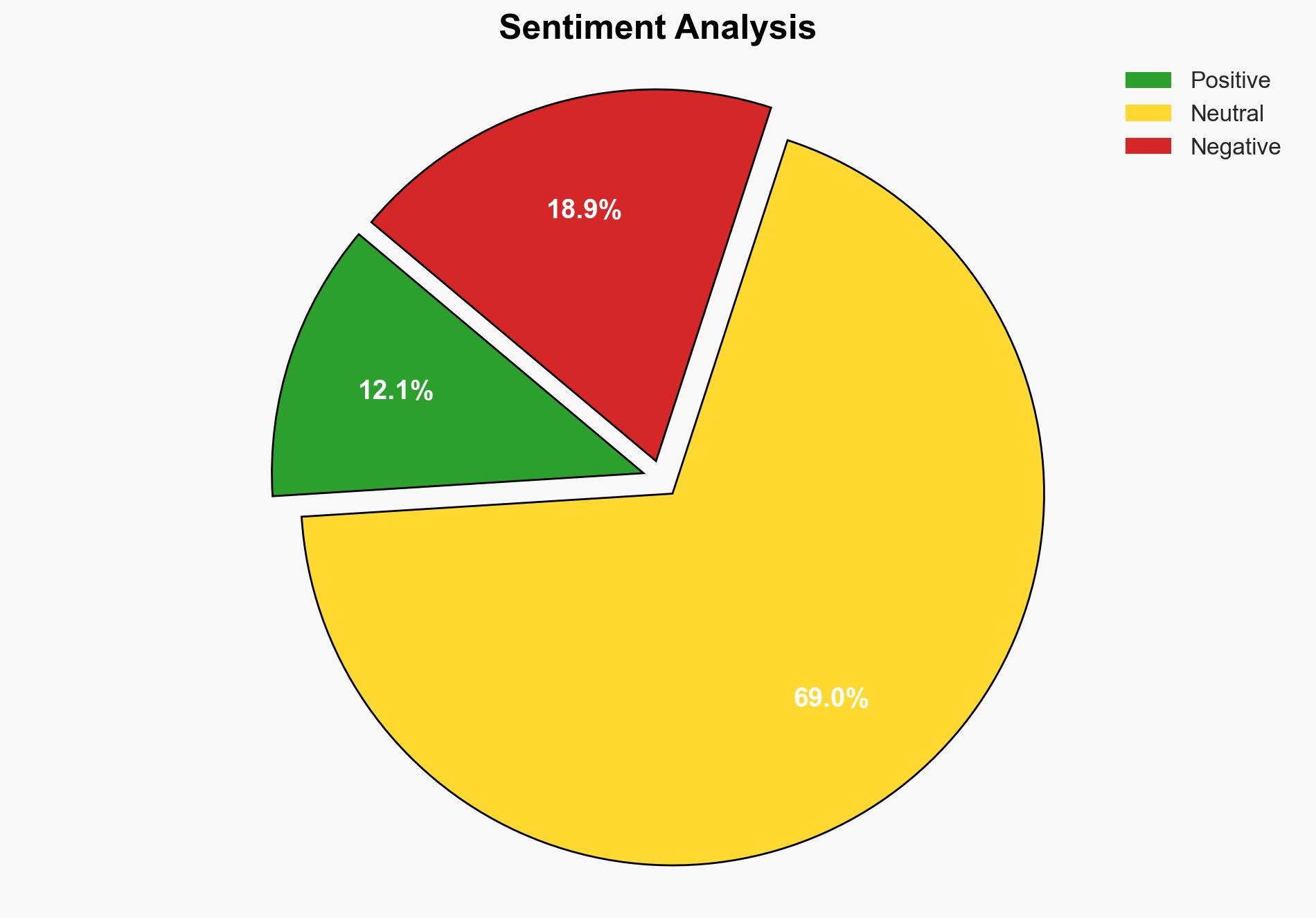Oracle Denies Breach Amid Hackers Claim of Access to 6 Million Records – HackRead
Published on: 2025-03-22
Intelligence Report: Oracle Denies Breach Amid Hackers Claim of Access to 6 Million Records – HackRead
1. BLUF (Bottom Line Up Front)
A recent investigation by CloudSEK’s XVigil platform has uncovered a cyberattack targeting Oracle Cloud, resulting in the alleged exfiltration of 6 million records. Oracle has denied any breach of its cloud infrastructure. The threat actor, identified as Rise, claims to have compromised Oracle’s systems and is demanding ransom for the removal of stolen data. The potential impact includes unauthorized access, corporate espionage, and significant data exposure. Immediate action is recommended to mitigate risks.
2. Detailed Analysis
The following structured analytic techniques have been applied for this analysis:
General Analysis
The cyberattack involved the exploitation of known vulnerabilities in Oracle Fusion Middleware, specifically targeting outdated software versions. The attackers reportedly accessed sensitive data, including cryptographic keys and encrypted passwords. The breach was facilitated by leveraging a CVE affecting Oracle Fusion Middleware’s OpenSSO agent, which allowed unauthorized network access. Despite Oracle’s denial, the evidence suggests a substantial risk of data compromise.
3. Implications and Strategic Risks
The breach poses significant risks to national security and economic interests due to the potential exposure of sensitive corporate data. The unauthorized access could lead to corporate espionage and financial losses. The incident highlights vulnerabilities in cloud security practices, emphasizing the need for improved patch management and threat intelligence monitoring. The breach also raises concerns about the security of cloud-based systems and the potential for similar attacks on other organizations.
4. Recommendations and Outlook
Recommendations:
- Implement immediate credential rotation and incident response measures.
- Enhance patch management practices to address known vulnerabilities.
- Strengthen access control mechanisms and conduct regular security audits.
- Invest in continuous threat intelligence monitoring and engage in proactive security verification.
Outlook:
Best-case scenario: Rapid implementation of security measures prevents further data exposure and mitigates potential damage.
Worst-case scenario: Continued exploitation of vulnerabilities leads to significant data breaches and financial losses.
Most likely outcome: Organizations enhance security practices, reducing the risk of similar incidents in the future.
5. Key Individuals and Entities
The report mentions significant individuals and organizations, including Oracle and Rise, without providing any roles or affiliations.





